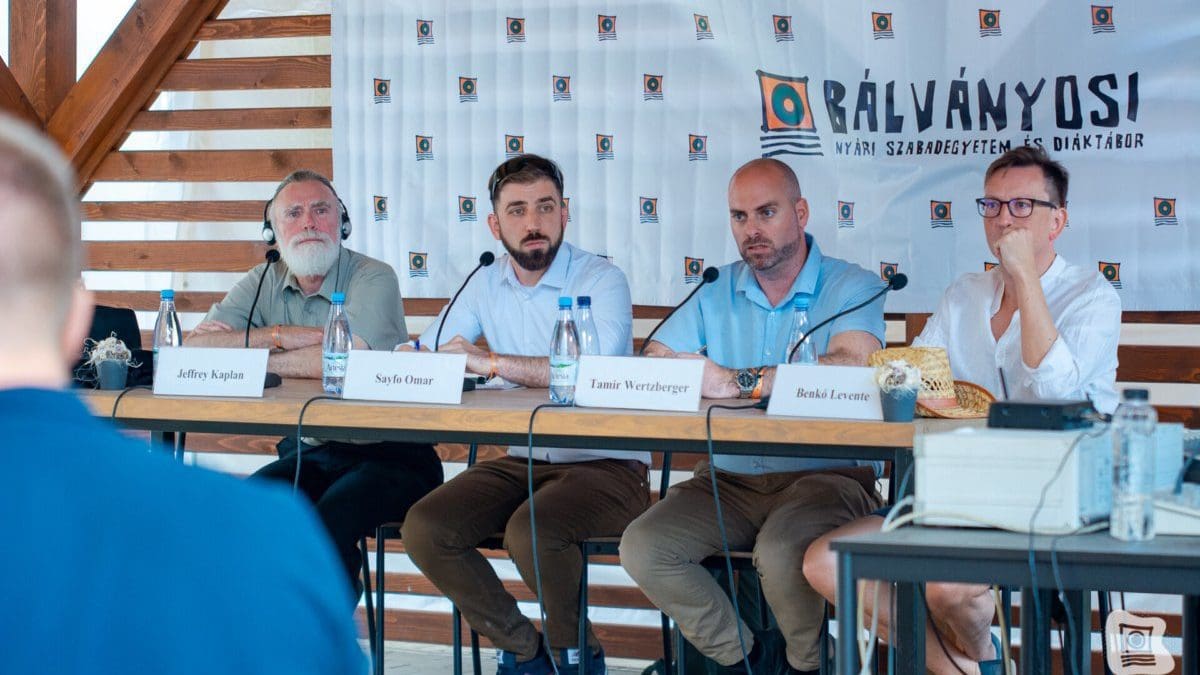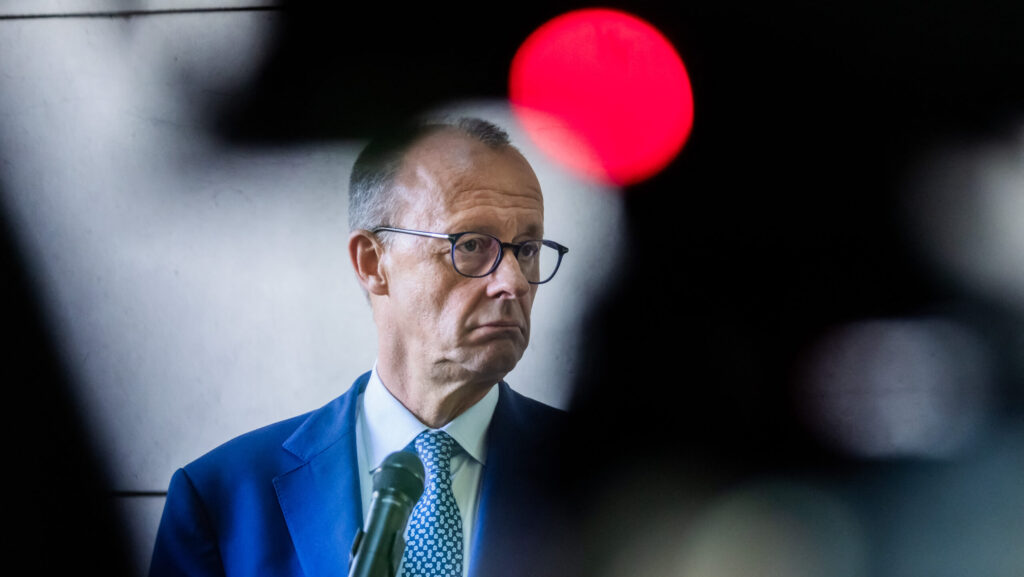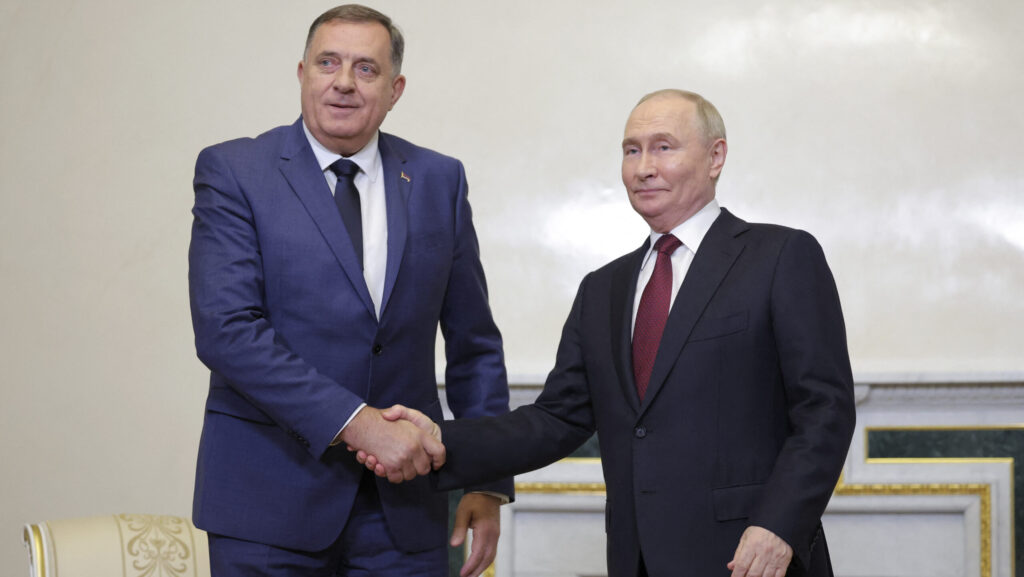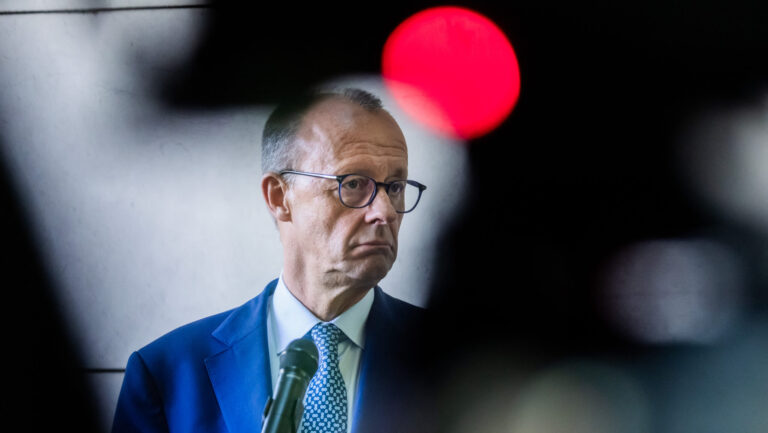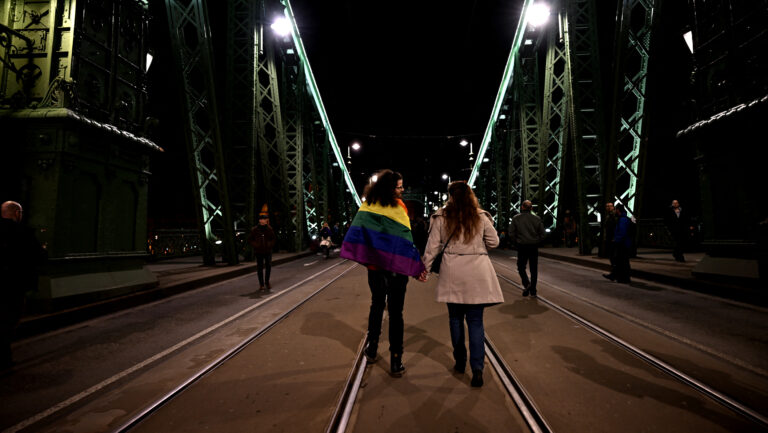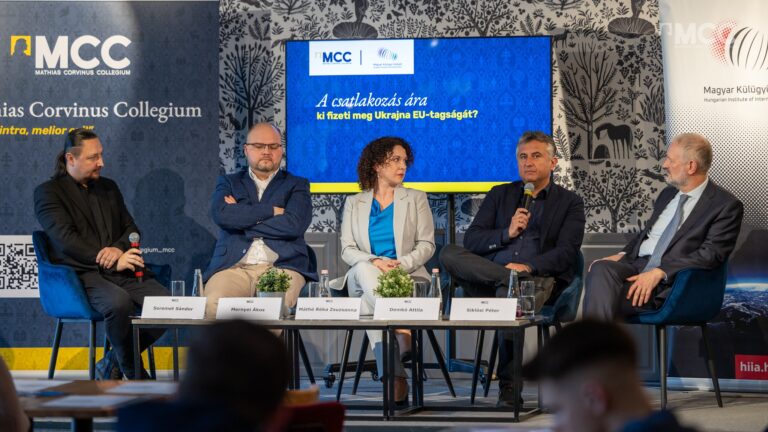It has been seven years since the start of the European migration crisis in 2015. Back then, Europe was utterly unprepared for what was unfolding at its gates, completely misjudging the nature and character of the massive influx of migrants from the Middle East and North Africa. While terrorist organizations such as ISIS (also known as Daesh) were wreaking havoc in Syria and Iraq, leaving millions with no other options than to flee their homes for neighboring countries, the vast majority of those reaching Europe were in fact economic migrants–and not refugees– who abused the European Willkommenskultur with the help of criminal human smugglers, who stripped them of their life savings with the promise of a better future. Among the many negative consequences of the migration crisis that Europe had to face there was one that was perhaps the most heavily debated, and that was the appearance of large-scale Islamic terrorism on EU soil. The fact that terrorist organizations can and do exploit the large waves of migration to smuggle their agents into Europe should have been obvious from the start, except it was not. When news broke about the terror attacks in France, Belgium, Germany, Britain and elsewhere, it immediately should have left policy-makers questioning their decisions amid the growing resentment of their citizen. Instead, the EU largely carried on as if it was business as usual, rejecting the quite apparent link between mass migration and the sharp rise in attacks, or the link between terrorism and radical Islam.
Now, with the world in turmoil again and governments crumbling especially in the poorer regions of the globe, it is just reasonable to presume that we are going to see more instability, conflicts, wars and new waves of mass migration – which pose dangerous opportunities for terrorists to exploit across the Middle East and Europe. But what circumstances shape radicalism in the first place? What is it like seeing and living it on a daily basis in regions plagued by it? What can we expect in this regard in the coming years and what political solutions do and should exist to counter terrorist activities? Well, these were the topics of an interesting panel at this year’s Tusványos, a political summer university and music festival in Transylvania (which we have already covered here and here). The panel was moderated by Omar Sayfo, a senior researcher of the Migration Research Institute, and his guests included senior political officials as well as academic experts of radicalism.
What is Terrorism to Begin With?
First, Prof. Jeffrey Kaplan (a US scholar, currently working and living in Hungary as a distinguished fellow of the Danube Institute) introduced the audience to the cultural background of radicalism. He explained that terrorism does not emerge from a group of people simply being evil, but it all comes down to power, and how much an individual is willing to sacrifice to take hold of it. And that power is needed to change the world for the better (as far as those involved believe) since a lot of intertwined social pressures (tribal, class and family structures, or blood feuds that last for centuries) often reinforce the idea that the state, government or an entire ethnic group is the enemy that keeps them down. When an individual feels that they have no other option but violence to make themselves heard, that’s when radical terrorism is born. What we need to understand is that terrorists would gladly use conventional warfare if they could, but their situation simply makes it impossible (consider, for instance, the power imbalance between the IDF and the Palestinians). ‘Terrorism is ultimately a tactic, one of the weak against the strong’, he added.
‘Terrorism is ultimately the tactic of the weak against the strong’
In most cases, there is no clear goal to the terrorists’ crusade, and there cannot be one by definition, since terrorist organizations see their purpose in reaching an idealized version of a long-lost ‘golden age’, which never truly existed in history. But if you believe it did and that it can be brought forth again, ‘you’re willing to sacrifice anything to reconstitute it – even family, freedom, or blood’, said Kaplan.
Another panelist, Tamir Wertzberger, a former intelligence officer of the IDF, now head of the Action and Protection League in Brussels, shared a number of personal accounts of encountering Islamic terrorism while growing up in Israel. He told the audience that the purpose of terror was to spread fear by reinforcing the idea that attacks can happen anywhere, anytime and to anyone, therefore vigilance is key in combatting it. Unfortunately, he said, the European Union doesn’t have much experience with terrorism and refuses to learn from much more experienced countries, such as Israel. If Europe doesn’t understand who the enemy is and how to fight it, it can never expect to win in the long run, he concluded.
Is there a Recipe to Combat Terrorism?
Levente Benkő, Hungary’s ambassador to Tel-Aviv outlined the Hungarian perspective of how Europe and the West in general should address the problem of terrorism, starting at its roots: mass migration. The core tenet of Hungarian foreign policy in this regard has two components: identifying the countries and governments that can serve as ‘pillars’ that can help Europe in these crises (such as Israel, Egypt, Jordan or Turkey, chosen for different cultural and geopolitical reasons) and secondly, building a relationship with them based on pragmatic cooperation at the EU level. Europe has essentially two choices, Benkő said. One is to carry on viewing these key pillar countries through the lens of its woke, Western ideology and morality (which would only alienate them and thus is extremely counterproductive) and the second is to instead base foreign policy on pragmatic approaches, which allows full cooperation in terms of policy areas where the parties’ interests are aligned. Every EU member, including Hungary, is responsible for steering Brussels in the right direction.
‘No terror attack was carried out by priests’
According to Wertzberger, understanding the nature of Islamic terrorism is the first step on the road toward combatting it. ‘When you’re hurt, you go to the doctor to have a diagnosis and get treatment’, he said. ‘The West feels hurt, but doesn’t want to hear the diagnosis, and therefore won’t get any treatment.’ Europe simply cannot continue downplaying terrorism as acts of individuals with mental illness, because nothing will be solved without admitting that the problem is radical Islam. ‘This is a statistical fact. No terror attack was carried out by priests or rabbis in Europe,’ he highlighted. The second step is similar to what Benkő said: we need to know who our allies are. For Wertzberger, Israel should be regarded as a natural ally to the EU, since it was built on Western democratic values, and has been fighting on the frontline of counter-terrorism since the day it was born. Yet, the EU doesn’t seem to be interested in cooperation, and that needs to change. There should be no difference of how we view an attack in Tel-Aviv or one in Paris. ‘We have a saying in Israel’, he said, ‘if you don’t support your forces on the frontline, your house will be attacked next.’
Regarding Israel’s foreign policy options, Wertzberger expressed his belief that Prime Minister Netanyahu’s Middle East Peace Plan–which, if accepted by the Palestinians, would have granted them statehood on an extended territory–was doomed from the start. ‘Sacrificing your land for peace never works in the Middle East’, he said. ‘Only giving peace for peace does.’ Therefore, the solution lies in the wider geopolitical strategy Israel has been pursuing over the last decade, under which it sought to build strategic relationships with the neighbouring Sunni countries, primarily by being the strongest regional force opposing Iran’s Shia expansionism. In the Middle East, the only viable option is to maintain a strong military and diplomatic force, which creates a situation where ‘the other side’s interest will be to be your ally and not your enemy’, Wertzberger said. ‘The Arabs have already started to recognize that Israel is not the enemy; maybe in the future Europe will as well.’
Until recently, Israel has had a special relationship with Hungary, and regarded the country as its foremost ally in the European Union. This had much to do with the professional and personal friendship between the prime ministers Netanyahu and Orbán, but now with the former gone from the Knesset, the future of this cooperation is constantly questioned. However, Ambassador Benkő reassured the audience, Hungary still regards Israel as one of its most important strategic partners, and will continue to defend it in the international fora, regardless of who is in charge of the country. ‘What will happen in November, though’, he added, hinting at the coming Israeli election, ‘remains the million shekel question.’
Is Today’s Terrorism Different?
At one point, Prof. Kaplan explained that even though in the past terrorist organizations (such as the PLO or the IRA) resorted to unconventional, hybrid methods of warfare in the absence of other options, they still sought to achieve conventional political solutions, meaning written treaties granting political and territorial rights to their communities. With the rise of al-Qaeda in Iraq in the late 1990s, however, a new kind of terrorism was born, which continues to evolve to this day. Daesh is a prime example of this new wave, which Kaplan called ‘apocalyptic’ terrorism. Its philosophy and goals are much less material than those of the more traditional groups, and instead could be described as metaphysical. The goal is no longer something as palpable as a recognition of independence, but something divine instead. And that makes these groups significantly more radical and their violence more extreme. ‘You can compromise in politics, but not in the word of God. If the goal is salvation, any price is justifiable.’
Now, current events could easily exacerbate this apocalyptic mindset. The global crises we see all around us drive many people–in the Middle East and elsewhere–to search for a hidden, underlying meaning, and sacred texts easily provide cyphered explanations for anyone dedicated to finding them. On a more positive note, Prof. Kaplan said he beleived that this phenomenon will have the opposite effect of what most experts of terrorism predict. He believes that global crises do not intensify apocalyptic terrorism, but quite the contrary. The kind of people who tend to see the world through the lens of the metaphysical, will likely interpret everything that is happening as divine punishment – be it a pandemic, a war or a financial crash. Instead, terrorism will become more localised and political once again, while those groups that are keen on spreading their ideology far and wide will take a step back, rethink their position and see what God has in mind. ‘Why should they gear up? They just have to sit back and watch the world crumble,’ the professor suggested.
‘Just have to sit back and watch the world crumble’
Is Europe Safe then?
If Kaplan’s assessment is correct, in the near future we will hardly see any major attacks on EU soil, certainly nothing comparable to the ones between 2015 and 2018. But that does not mean that terrorism will cease to exist, or that certain organisations will not try to exploit the migratory waves we are facing. Nonetheless, Europe’s responsibility lies in doing whatever it can in order to protect the local communities in the Middle East and Africa. While we will most likely see little Daesh activity, lesser and more political groups that will seek to take power in certain areas will increase in numbers. According to Benkő, the hardships have just begun. ‘The most optimal scenario would be if we could keep instability at its current level, but we are not going to be able to do that,’ he said. ‘The geopolitical stability of Europe depends on the stability of our neighborhood, which is something we must never forget.’

